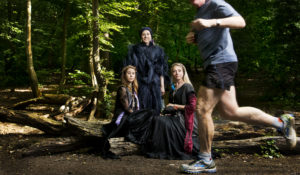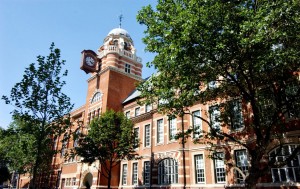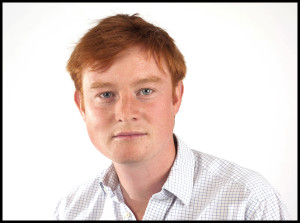Sophie Barnes (Investigative, 2012), deputy news editor for Inside Housing, has been shortlisted for the XCity Award for her award-winning reportage on the oversights in fire safety, both before and after the Grenfell fire in June of last year.
Her coverage of fire safety issues began following the Lakanal House tower block fire in south London, which claimed six lives in 2009. This spurred her investigation into the dangers of cladding and the lack of change to government regulations since the incident.
In March, three months before the Grenfell fire, Barnes wrote an article for Inside Housing criticising the Government’s delay in reviewing fire safety regulations for tower blocks, and explicitly stated the potential danger to residents.
After Grenfell, Barnes investigated issues of cladding on a wider scale and gained access to the fire risk assessments of almost 600 tower blocks across the country through Freedom of Information requests.
She said: “It painted a picture of fire safety issues across the board. It wasn’t just a one-off situation to have issues like broken fire doors and no emergency lighting. And that’s one of the things the Grenfell residents reportedly said when they were trying to run out of the building – that there was no lighting.”
Barnes was shortlisted after being named Housing/Residential Journalist of the Year at the International Building Press Awards back in November 2017. She was also part of the team that won News Provider of the Year at the British Journalism Awards in 2017, and was “highly commended” in the New Business Journalist of the Year category at last year’s Professional Publishers Association New Talent Awards.
Barnes is currently investigating how the cladding issue affects people living in privately-owned blocks. Landlords sometimes offset the cost of removing cladding by charging leaseholders, with some facing charges of up to £20,000 to do so, according to her. “They’re saying: ‘First off, we never agreed to this cladding. We didn’t know it wasn’t safe, we just moved in. Why are we having to pay the cost to remove it when they put it on the building?’”, she says.
She is also involved in Inside Housing’s campaign to ensure that the Government and landlords throughout the country focus, as a matter of urgency, on the issue of fire safety. “We want landlords to look again at their tower blocks and make sure they’ve got regular fire risk assessments done by people who are competent and experienced.”
She adds: “I’ve been calling for sprinklers to be retrofitted in tower blocks for a long time. The latest research suggests it’s not that expensive and it’s definitely worth doing.”
Also contributing to her awards success was Barnes’ research into welfare reform and the benefit cap – the limit to the total amount of money that can be received from benefits, which applies only to those that receive Housing Benefit or Universal Credit. This led to her exposing several social landlords who turned away vulnerable families affected by the drop in the overall annual cap on housing benefits from £26,000 to £20,000, or £23,000 in London.
She has also covered the increase in rough sleeping in London, saying: “I’ve seen a mum and her child, who have fled domestic abuse, being turned away from the council for sleeping in a police station overnight because there’s nowhere else to sleep.”


















